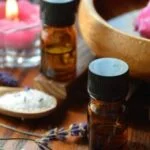Graves Disease, a common autoimmune disorder, can cause a range of uncomfortable symptoms for those affected. From anxiety and stress to fatigue and muscle weakness, managing the condition can be challenging. However, aromatherapy has emerged as a potential holistic approach to easing these symptoms.
By harnessing the healing properties of essential oils, patients may find relief from the effects of Graves Disease. In this article, we will explore the role of aromatherapy in managing Graves Disease symptoms and provide valuable insights into its benefits and applications.
Firstly, it is crucial to understand the causes and symptoms of Graves Disease in order to appreciate the impact that aromatherapy can have on managing the condition. From there, we will delve into the potential benefits of using essential oils to alleviate these symptoms. Additionally, we will discuss various aromatherapy techniques specifically tailored for stress and anxiety relief in Graves Disease patients. We will also explore how aromatherapy can complement traditional medical treatments for a comprehensive care plan.
Furthermore, this article will feature DIY aromatherapy recipes designed for effective Graves Disease management, ensuring that patients have access to practical solutions they can implement at home. Safety precautions related to using aromatherapy for Graves Disease will also be addressed to provide readers with important guidelines for their well-being. Lastly, we aim to provide real-life success stories and expert advice on incorporating aromatherapy into one’s care plan for managing Graves Disease effectively.
The Role of Aromatherapy in Managing Graves Disease Symptoms
Graves disease is an autoimmune disorder that affects the thyroid gland, leading to symptoms such as weight loss, rapid heart rate, and anxiety. While traditional medical treatments play a crucial role in managing the condition, more patients are turning to complementary therapies like aromatherapy to alleviate their symptoms. Aromatherapy involves the use of essential oils extracted from plants to promote physical and emotional well-being.
Aromatherapy has been found to be effective in managing some of the common symptoms of Graves disease, such as stress and anxiety. Essential oils like lavender, chamomile, and bergamot have calming properties that can help reduce feelings of anxiousness and promote relaxation. Inhaling these oils through methods like diffusion or adding a few drops to a warm bath can provide relief for patients experiencing heightened anxiety due to their condition.
Furthermore, aromatherapy can also aid in promoting better sleep for Graves disease patients who may suffer from insomnia or disrupted sleep patterns. Essential oils like cedarwood, valerian, and sweet marjoram have sedative properties that can help induce a restful sleep. By incorporating these oils into their bedtime routine, patients may experience improved sleep quality and overall well-being.
| Graves Disease Symptom | Recommended Essential Oils |
|---|---|
| Stress and Anxiety | Lavender, Chamomile, Bergamot |
| Sleep Disturbances | Cedarwood, Valerian, Sweet Marjoram |
Essential Oils and Their Healing Properties for Graves Disease
Aromatherapy, the practice of using essential oils to improve physical, mental, and emotional well-being, has gained attention as a complementary therapy for managing Graves Disease symptoms. Essential oils are concentrated liquids extracted from plants that have been used for centuries for their therapeutic properties. When it comes to Graves Disease, certain essential oils are known for their healing properties that can help alleviate symptoms associated with the condition.
Lavender oil is one of the most popular essential oils used in aromatherapy for its calming effects. It has been shown to reduce stress and anxiety, which are common symptoms experienced by individuals with Graves Disease. Additionally, peppermint oil can provide relief from fatigue and promote alertness, addressing the energy-depleting effects of the condition. Frankincense oil is another essential oil known for its anti-inflammatory properties, which can help ease the inflammation often seen in Graves Disease.
Furthermore, lemon oil can be beneficial in supporting the immune system, which may be compromised in individuals with Graves Disease. Its uplifting scent can also help combat feelings of depression and boost mood. These essential oils can be incorporated into various aromatherapy techniques such as diffusing them into the air, diluting them and applying them topically on the skin, or adding a few drops to a relaxing bath.
As more research is conducted on the potential benefits of aromatherapy for those with Graves Disease, integrating these healing essential oils into daily self-care routines may offer relief from some of the challenging symptoms associated with the condition. It’s important to note that while essential oils can be a valuable addition to a comprehensive treatment plan for Graves Disease management, they should not replace traditional medical treatments but rather complement them.
Consulting with a healthcare professional before incorporating aromatherapy into an individual care plan is crucial to ensure safety and effectiveness.
Aromatherapy Techniques for Stress and Anxiety Relief in Graves Disease Patients
Living with Graves’ disease can be challenging, as the condition often comes with symptoms such as stress and anxiety. Managing these psychological symptoms is crucial for improving the overall well-being of patients. Aromatherapy has been found to be an effective complementary therapy in providing stress and anxiety relief for individuals with Graves’ disease.
Calming Essential Oils
Certain essential oils are known for their calming and relaxing properties, which can be beneficial for Graves’ disease patients experiencing stress and anxiety. Lavender, chamomile, and bergamot are popular choices for promoting relaxation and reducing tension. These essential oils can be used in various aromatherapy applications, such as diffusers, massage oils, or bath salts.
Aromatherapy Techniques
Aromatherapy techniques such as inhalation and topical application can help alleviate stress and anxiety in Graves’ disease patients. Inhaling the aroma of calming essential oils through a diffuser or inhaler can have a soothing effect on the mind and body. Furthermore, diluting essential oils with carrier oil and using them for gentle massage or adding a few drops to a warm bath can also contribute to relaxation.
Integration Into Daily Routine
Incorporating aromatherapy into daily routines can provide consistent relief from stress and anxiety for Graves’ disease patients. Creating a calming ambiance at home by regularly using essential oils in diffusers or applying them during self-care practices like meditation or yoga can contribute to overall psychological well-being. Additionally, carrying an aromatherapy inhaler containing relaxing essential oils when going out can offer comfort during stressful situations.
By integrating these aromatherapy techniques into the care plan for Graves’ disease management, patients may experience reduced levels of stress and anxiety, ultimately leading to an improved quality of life. It is important for individuals with Graves’ disease to consult with healthcare professionals before incorporating any new therapy into their treatment regimen.such as graves disease aromatherapy.
The Benefits of Using Aromatherapy in Conjunction With Traditional Medical Treatments
Aromatherapy has been shown to provide numerous benefits for individuals with Graves Disease when used in conjunction with traditional medical treatments. These benefits include:
1. Stress and anxiety relief: Aromatherapy can help manage stress and anxiety, which are common symptoms of Graves Disease. Essential oils such as lavender, chamomile, and bergamot have been found to have calming effects on the mind and body.
2. Improved mood and mental well-being: Certain essential oils, such as peppermint and citrus oils, may help improve mood and promote mental clarity. This can be especially beneficial for individuals experiencing mood swings or cognitive difficulties due to their Graves Disease.
3. Enhanced relaxation and sleep quality: Many people with Graves Disease struggle with insomnia or difficulty falling asleep. Aromatherapy techniques such as diffusing lavender oil or using a relaxing blend of oils before bedtime can promote relaxation and improve sleep quality.
It is important to note that while aromatherapy can offer these valuable benefits, it should not be used as a substitute for traditional medical treatments for Graves Disease. Rather, it should be seen as a complementary approach that can work alongside conventional medications and therapies to provide holistic care for individuals with this condition. Always consult with a healthcare professional before incorporating aromatherapy into your treatment plan to ensure its safety and effectiveness for your specific case of Graves Disease.
DIY Aromatherapy Recipes for Graves Disease Management
Living with Graves Disease can be challenging, but incorporating aromatherapy into your daily routine can help manage symptoms and improve overall well-being. Aromatherapy involves using essential oils to promote physical and psychological well-being, and there are several DIY recipes that you can easily make at home to support your Graves Disease management.
Here are some simple and effective DIY aromatherapy recipes for Graves Disease management:
- Lavender and Peppermint Inhalation: Add a few drops of lavender and peppermint essential oils to a bowl of hot water. Cover your head with a towel and inhale the steam deeply for relief from stress, anxiety, and fatigue.
- Frankincense Massage Oil: Mix a few drops of frankincense essential oil with a carrier oil such as coconut or almond oil. Massage this blend onto your neck and chest area to alleviate inflammation, muscle tension, and promote relaxation.
- Citrus Room Spray: Combine lemon, orange, and bergamot essential oils with water in a spray bottle. Use this refreshing citrus spray in your living space to uplift your mood and create a calming atmosphere.
These DIY aromatherapy recipes provide natural relief from the symptoms of Graves Disease, offering relaxation, comfort, and support for managing the condition on a day-to-day basis. Additionally, the act of creating these blends can be soothing in itself, providing an opportunity for self-care and mindfulness amidst the challenges posed by Graves Disease.
Remember to consult with a healthcare professional before using aromatherapy as part of your treatment plan for Graves Disease. It’s important to ensure that essential oils do not interfere with any existing medications or treatments prescribed by your doctor. By incorporating aromatherapy into your care routine responsibly, you can experience the potential benefits it offers for managing Graves Disease symptoms.
Aromatherapy Safety Precautions for Graves Disease Patients
Graves Disease is an autoimmune disorder that results in an overactive thyroid and can cause a range of symptoms such as anxiety, weight loss, and rapid heartbeat. Aromatherapy is a popular complementary therapy that can help manage some of these symptoms. However, it is important for Graves Disease patients to take certain safety precautions when using essential oils due to their potent nature.
One of the most important safety precautions for Graves Disease patients using aromatherapy is to consult with a qualified healthcare professional before incorporating any essential oils into their treatment plan. This is crucial because some essential oils can interact with medications commonly used to manage Graves Disease, potentially causing adverse effects. Additionally, individuals with overactive thyroids may have heightened sensitivity to certain scents, so it’s important to ensure that the chosen essential oil will not exacerbate any existing symptoms.
Another safety precaution for Graves Disease patients using aromatherapy is to perform a patch test before using any new essential oil. This involves applying a small amount of diluted oil to the skin and monitoring for any allergic reactions or sensitivities. Due to the autoimmune nature of Graves Disease, individuals may be more prone to allergic responses, so exercising caution with new oils is vital.
It’s also crucial for Graves Disease patients to dilute essential oils properly before use. Undiluted essential oils can be too strong and may cause skin irritation or other adverse reactions.
Diluting them in a carrier oil such as coconut or jojoba oil helps mitigate these risks and ensures safe use. Lastly, practicing proper ventilation when diffusing essential oils at home is important for Graves Disease patients, as strong scents in enclosed spaces may trigger discomfort or exacerbate symptoms such as anxiety and palpitations.
| Safety Precaution | Description |
|---|---|
| Consult with Healthcare Professional | Due to potential interactions with medications and heightened scent sensitivity. |
| Perform Patch Test | To monitor for allergic reactions or sensitivities due to autoimmune nature of the disease. |
| Dilute Essential Oils | In order to prevent skin irritation or adverse reactions. |
| Practice Proper Ventilation | To avoid triggering discomfort or exacerbating symptoms such as anxiety and palpitations in enclosed spaces. |
Success Stories
Personal Testimonies
Many individuals with Graves disease have reported positive experiences with using aromatherapy as part of their management plan. One individual, who has been coping with Graves disease for several years, shared that incorporating lavender essential oil into her daily routine has significantly helped alleviate her anxiety and stress levels.
Another individual found relief from insomnia by using chamomile and bergamot essential oils before bedtime. These personal testimonies highlight the potential of aromatherapy as a complementary approach to managing symptoms of Graves disease.
Improvement in Quality of Life
In addition to symptom management, individuals have also expressed an improvement in their overall quality of life after incorporating aromatherapy into their care plan. Some have mentioned experiencing a greater sense of calm and relaxation, while others have reported feeling more in control of their emotional well-being. By reducing stress and anxiety levels, aromatherapy has contributed to enhancing the daily lives of those living with Graves disease.
Enhancing Traditional Treatments
Furthermore, some individuals have found that combining aromatherapy with traditional medical treatments has resulted in a more holistic approach to managing Graves disease. One patient mentioned that while medication effectively controlled certain symptoms, the addition of aromatherapy provided an extra layer of support, particularly in addressing emotional and psychological aspects of the condition. These success stories emphasize the potential benefits of integrating aromatherapy into the overall care plan for individuals with Graves disease.
Expert Tips and Advice for Incorporating Aromatherapy Into Graves Disease Care Plan
In conclusion, aromatherapy has been increasingly recognized as a complementary therapeutic approach for managing symptoms of Graves Disease. Understanding the causes and symptoms of this autoimmune condition is essential in exploring alternative treatments such as aromatherapy.
Aromatherapy plays a vital role in promoting stress and anxiety relief, which are common symptoms experienced by Graves Disease patients. The use of essential oils with their healing properties can provide comfort and aid in relaxation, contributing to an improved quality of life for those living with Graves Disease.
Incorporating aromatherapy into the care plan for Graves Disease can offer numerous benefits when used in conjunction with traditional medical treatments. Many individuals have reported positive experiences with aromatherapy as a complementary approach to managing their condition. By adhering to safety precautions and seeking expert tips and advice, patients can safely incorporate aromatherapy into their care plan to alleviate symptoms and improve overall well-being.
Furthermore, DIY aromatherapy recipes tailored specifically for Graves Disease management provide patients with the flexibility to personalize their treatment regimen according to their specific needs. As more success stories surface from real-life experiences, it becomes evident that incorporating aromatherapy into a comprehensive care plan for Graves Disease can be exceedingly beneficial. Overall, the utilization of aromatherapy in managing Graves Disease demonstrates promising potential as part of an integrative approach to treatment.
Frequently Asked Questions
What Is the Aromatherapy Blend for Thyroid?
The aromatherapy blend for thyroid commonly includes essential oils like myrrh, frankincense, lemongrass, and lavender. These oils are believed to support thyroid function and promote balance within the body.
What Can Flare Up Graves Disease?
Graves disease can be triggered or exacerbated by factors such as stress, infections, smoking, and pregnancy. Stress management is crucial for individuals with Graves disease to prevent flare-ups.
Does EndoFlex Help Thyroid?
EndoFlex is an essential oil blend that may help support a healthy endocrine system, including the thyroid. It contains oils like spearmint, sage, and myrtle, which are believed to have beneficial effects on thyroid function in some individuals.

Are you looking for a natural way to improve your health and wellbeing?
If so, aromatherapy may be the answer for you.



